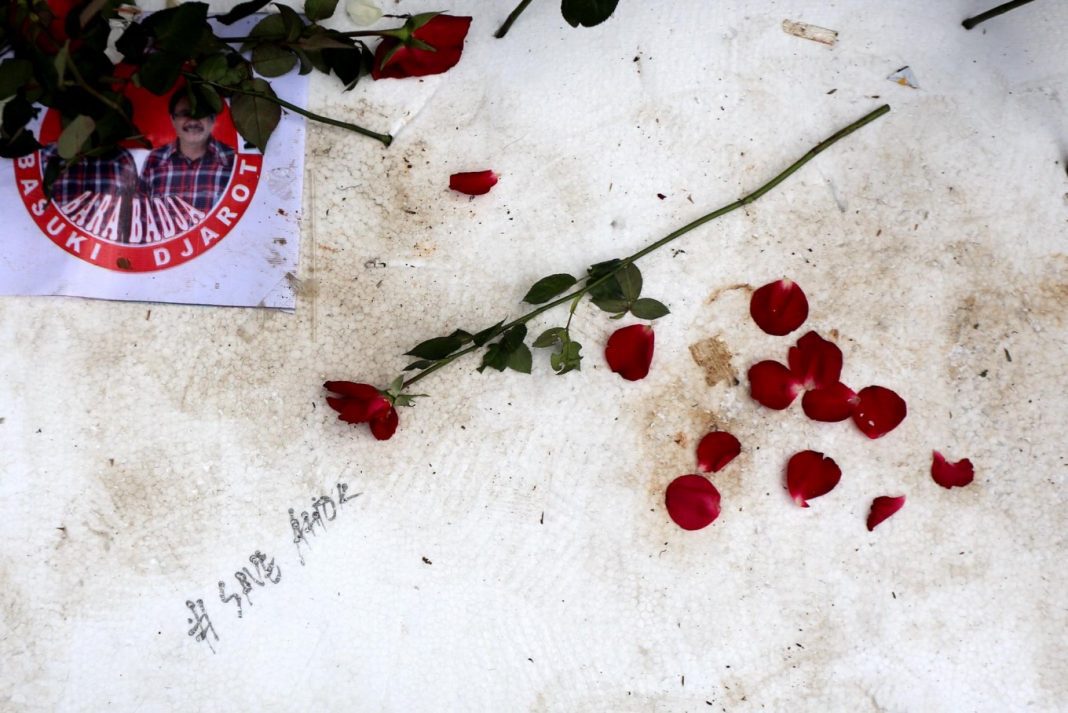In the wake of Basuki “Ahok” Tjahaja Purnama’s election defeat and subsequent conviction, there is a pressure to “move on” from the chaos stemming from the Jakarta gubernatorial election. The whole episode was indeed an intellectually and emotionally draining experience for the entire nation.
Yet to blatantly dismiss the consequences of this conundrum will eventually damage Indonesian political maturity and social cohesion. The Ahok controversy revealed social fractures which were well-hidden under the facade depicting Indonesia as a tolerant, moderate, and progressive Muslim-majority nation.
Firstly, the public’s political participation continues to be impaired by the symbolic versus substance dilemma. The primacy of symbol was exemplified in employment of identity politics as a political weapon and consolidation of power around certain celebrity-like actors.
As long as identity politics remain influential, Ahok’s political overkill will continue to send a discomforting message to any political candidate seeking the approval of constituents with different identities.
The other side of the coin is the excessive adherence to those who campaigned against Ahok and his supporters. For instance, the leader of the Islamic Defenders Front (FPI) Rizieq Shihab launched an anti-Ahok campaign that was so effective that many were willing to disregard the FPI’s harsh crusade for an Islamist agenda.
The public’s unreasonable identification with the symbols envisaged by political actors will continue to hamper Indonesia’s democratic process, which ideally rests on rationality and critical thinking. This raises questions over the political maturity of a nation that prides itself as a democratic country.
Secondly, the pressure to conform as seen in classic herd behaviour remains a strong force in Indonesia. Religion was utilized as an instrument when anti-Ahok rallies were mobilized. Muslims who embraced the group’s mentality were awarded with social acceptance by the majority group and also earned their place among the Muslim community that strived to safeguard the religion against a blasphemous governor.
Those who rejected were threatened with ostracization, shaming, and even religious excommunication. The gravity of such punishment leads to self-censorship, explaining the lack of counter-arguments by Muslims in the blasphemy discourse.
A conforming behavior to the anti-Ahok crowd would likely lead one to join future rallies demanding a religious Muslim in public office, if the public fails to assert a more critical approach to the issues raised during the anti-Ahok movement.
Thirdly, the recent swing to conservatives indicates many Indonesian Muslims’ incapability to reconcile religious and national identities. While conservatism in itself is a not a threat to the nation’s integrity, it may serve as a platform for the Islam supremacists, which some quarters are all too happy to pursue at the moment. Not only the demand for pious Muslim politicians and leaders, we now face an uptick trend of the disavowal of Pancasila values in favor of Islamic ideals by social media users.
In pluralistic democracies, compromise is a necessity for society to function. But the recent call for Islam’s dominance in political, economic, and social spheres raises not only fears among minorities regarding their rights and place in plural Indonesia, but also among multiple Muslim groups with differing approaches to the relationship between religion and state.
Calls for Islamic dominance also turns Islam into a lucrative political currency in political contests, allowing it to be further exploited by pragmatic actors who don’t not necessarily follow Islam’s values and ideals, and limiting the expression of any seemingly non-Islamic political system or worldview. This explains the mounting pressure to expunge the values of Pancasila as it places Islam and Muslims on equal footing with other religious groups, therefore denying the primacy of Islam in the public domain.
In conclusion, the controversy around Jakarta gubernatorial election should be a wake-up call to question some of the basic assumptions about how Indonesia is perceived. These include the portrayal of Indonesia as a success story of Islam-democracy reconciliation, the image of a tolerant and harmonious nation, and the image of Indonesia as a progressive Muslim-majority country.
Rather than pushing to move on from these latest polemics, Indonesians would do well to wrest this moment to understand how events unfolded as they did from an educated and critical lens. In this era of information, however, people must be smart in forming their opinion of how religion should play a role in a multicultural and multi-ethnic setting.
As we just celebrated Ramadhan and Idul Fitri, there is no better time to engage in self-reflection on how we could improve ourselves as Muslims and as patriotic citizens of our nation.
This article first appeared in The Jakarta Post, 5 July 2017.





